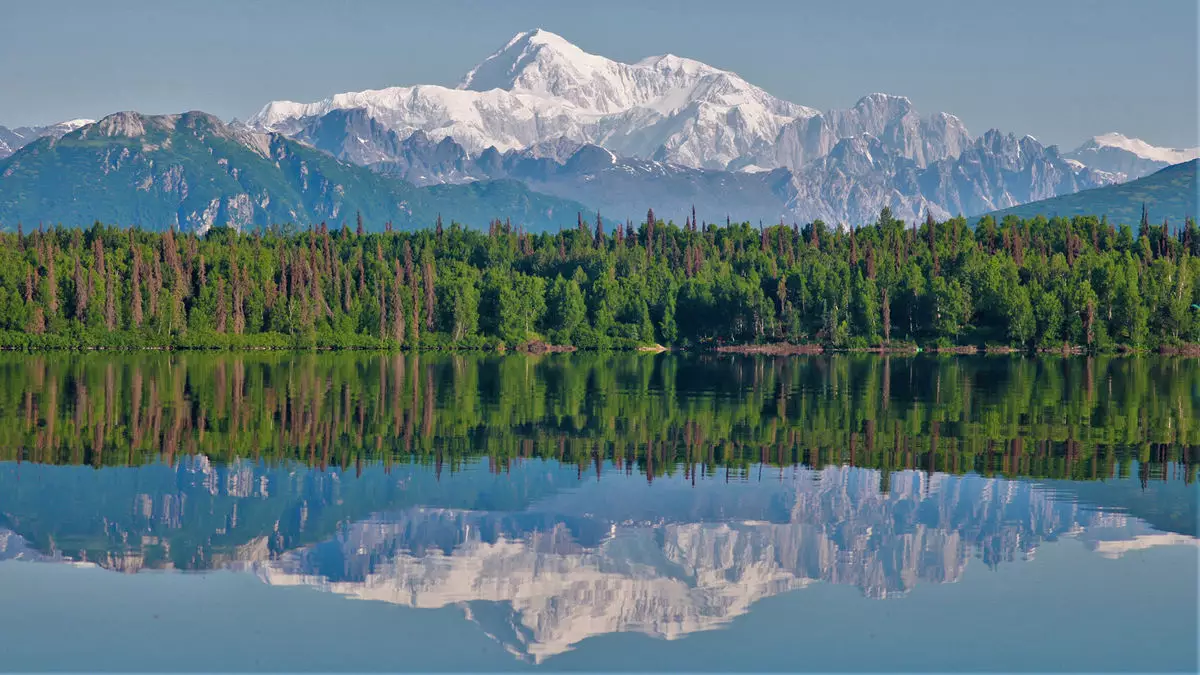The discussion surrounding the naming of North America’s tallest peak has sparked fierce debate and a deep-seated conflict that transcends mere nomenclature. At the heart of this debate is the mountain previously known as Mount McKinley, which was officially renamed Denali—meaning „the high one“ in the Koyukon Athabascan language—by the Obama administration in 2015. The executive decision faced a resurgence of opposition, notably during President Trump’s inauguration, when an order was enacted to revert the mountain’s name back to Mount McKinley. This shift has ignited a multifaceted discourse within Alaska, particularly among tourism stakeholders and Indigenous communities, who have emphasized the name Denali’s significance and cultural heritage.
To fully comprehend the weight of this dispute, it is essential to consider the historical context surrounding the mountain’s naming. Initially named Mount McKinley in 1917 in honor of President William McKinley, a figure from Ohio who never set foot in Alaska, the name has been contested for decades. In both 1975 and 2015, there were formal petitions presented to the U.S. government advocating for the recognition of the mountain’s Indigenous name. The transition back to Denali was celebrated as a significant gesture towards rectifying historical injustices faced by Indigenous populations in Alaska, who have long advocated for recognition and respect for their cultural names and traditions.
Indigenous Perspectives on the Name Change
Jordan Sanford, the president of Doyon Tourism and a member of the Upper Tanana Athabascan community, strongly articulates the Indigenous perspective regarding this issue. He emphasizes that the name Denali encapsulates more than just geographically locating the mountain; it embodies respect for Indigenous heritage and identity. The name change from McKinley to Denali was not merely a bureaucratic adjustment; it was celebrated as a step towards honoring Indigenous cultures that have existed in Alaska long before external influences. Sanford and supporters argue that reverting to the name Mount McKinley represents a rollback on the progress toward validating Indigenous identities, a sentiment echoed by various organizations operating within the tourism industry in Alaska.
The Position of the Tourism Industry
While the discourse is grounded in cultural and political complexities, the tourism industry in Alaska finds itself caught in the fray. Companies like Doyon Tourism and Kantishna Roadhouse have made their stance clear: they will continue to refer to the mountain as Denali. This resolve reflects a broader sentiment among many industry leaders who understand the importance of cultural integrity to the Alaskan experience. The CEO of the Alaska Travel Industry Association, Jillian Simpson, articulated that, irrespective of the mountain’s official name, the Indigenous people, along with most Alaskans, are likely to maintain the usage of Denali in casual discourse. This indicates a disconnect between governmental decrees and ground-level realities that bear witness to the community’s voice.
Broader Implications and Cultural Conversations
The controversy surrounding Denali has implications that reach beyond local geography. It sparks conversations about national identity, cultural respect, and the valuation of Indigenous practices and languages in modern America. For many, the debate is emblematic of broader societal tendencies to prioritize historical narratives driven by dominant cultural figures over Indigenous traditions that provide a deeper understanding of place and history. Sanford alludes to this by stating that Denali encompasses „respect, identity, and history,“ suggesting that the mountain’s name is intertwined with the very fabric of Indigenous culture.
As the name-denaming saga continues, it becomes increasingly apparent that this is not just about labeling a peak. It symbolizes an ongoing struggle for acknowledgment, a call for respect for the Indigenous cultures that have thrived in these lands long before Western contact. The discussion serves as a reminder that names carry weight, embodying histories, cultures, and identities. Ultimately, the mountain has a dual identity—one steeped in Indigenous reverence and another forged in the annals of American presidential history. As society continues to grapple with these complexities, the path forward must prioritize dialogue and understanding, recognizing the significance behind each name we invoke.


Napsat komentář